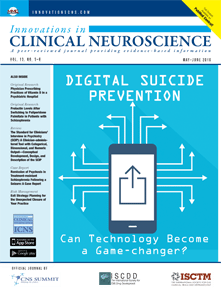
Dear Editor:
Polydipsia can lead to episodic life-threatening water intoxication and is a serious problem in many patients with chronic schizophrenia.[1] Although multiple factors have been implicated,[2] the reason why polydipsic-related overhydration behavior is repeated in some patients with schizophrenia remains unclear. Game theoretical modeling may offer a new tool for investigating behavioral impairments in patients with polydipsic schizophrenia.
Ultimatum bargaining, or the Ultimatum Game, is a game theory in experimental economics that explores the rationality of people in the real world.[3] The game is played by two people: a proposer and a responder. The proposer offers to split something (e.g., money) in uneven terms where the proposer will always receive a greater amount than the responder. The responder can either accept or reject the proposal. No bargaining is allowed. If the responder accepts the proposal, then whatever item is being bargained is split accordingly between the two individuals. If the responder rejects the proposal, neither player gets anything. The theory is that a rational responder would recognize that accepting any amount over zero of whatever is being bargained is better than receiving nothing, which is what would occur if the responder rejects the offer. However, responders often reject their bargaining partner’s offers if they feel it is unfair to them. In general, real-world responders usually accept take-it-or-leave-it offers that are higher than 40 percent of the total bargained item, and about half of all responders reject offers below 30 percent of the total.[4]
We utilized the Ultimatum Game to evaluate the reciprocal fairness feeling in five patients with polydipsic schizophrenia who gave their consent to participate. Participants consisted of two female and three male patients, aged 46 to 68 years old. The setting of our study was quite simple. The game was carried out by a proposer (a medical staff member) and a responder (each of the five patients). The staff member first made a proposal about how to split 3,000mL of water between the two of them. The patient could accept or reject the proposal without negotiation. If the patient accepted, the proposed split of water was distributed accordingly between the staff member and the patient. If the proposal was rejected by the patient, neither the staff member or the patient received any of the water.
The results were as follows and expressed as the mean±standard deviation (SD): Each of the five patients accepted, with pleasure, the proposal of receiving 22.0±4.0 percent of the total 3,000mL of water; they reluctantly accepted the proposal of receiving 15.0±3.2 percent of the total water; and they rejected, with righteous indignation, the proposal of receiving 8.0±2.5 percent of the total.
Empirical studies in human society show that humans prefer fair outcome,[3] even though the ultimatum bargaining game theory predicts a rational outcome. Neural basis behind this fair behavior is related to enhanced activity in the medial prefrontal cortex (MPFC), dorsolateral PFC, medial orbitofrontal cortex, posterior parietal cortex, and striatum, which are involved in the reward system of the brain and with the theory of mind.[5]
In our study, the patients with polydipsic schizophrenia finally refused the proposal of 8.0 percent of the total amount of water, which is considerably lower than the 30 percent that about half of all real-world responders would reject. Our patients with polydipsic schizophrenia seemed more motivated by the concept of reward than to a feeling of fairness, and thus seemed to act more rationally in the Ultimatum Game than other groups of responders. These results may not be related to the disease of the schizophrenia, however, because patients with nonpolydipsic schizophrenia showed no difference in rejection rates compared to healthy controls when acting as responders in previous research using the Ultimatum Game.[6]
Acute water intoxication can result in hyponatraemia, causing structural and functional abnormalities of the brain, including damage to neural circuits that regulate the reciprocal fairness feeling.[7] Due to the damage water intoxification can cause to the parts of the brain that control feelings of fairness, polydipic behavior in some patients with schizophrenia may be repeated, and this repeated polydipsic behavior may then cause further damage to these neural circuits.
The limitations of this study include the very small sample size and lack of neuroimaging data. Larger studies with functional magnetic resonance imaging (fMRI) or near infra-red spectoroscopy (NIRS) are needed to better understand how feelings of reciprocal fairness and reward affect patients with polydipsic schizophrenia so that polydipsic behavior can be better controlled in this patient population.
With regard,
Takahiko Nagamine, MD, PhD
Sunlight Brain Research Center, Hofu City, Yamaguchi, Japan
Funding/financial disclosures. The author received no funding nor has any conflicts of interest relevant to the content of this letter. This content has not been published or submitted for publication elsewhere except as a brief abstract in the proceedings of the Japanese society of Psychiatry and Neurology Meeting in 2015 in Japanese.
References.
1. Nagasawa S, Yajima D, Torimitsu S, et al. Fatal water intoxication during olanzapine treatment: a case report. Leg Med (Tokyo). 2014;16(2):89–91.
2. Goldman MB. The mechanism of life-threatening water imbalance in schizophrenia and its relationship to the underlying psychiatric illness. Brain Res Rev. 2009;61(2):210–220.
3. Sanfey AG, Rilling JK, Aronson JA, et al. The neural basis of economic decision-making in the Ultimatum Game. Science. 2003;300(5626):1755–1758.
4. Güth W, Schmittberger R, Schwarze B. An experimental analysis of ultimatum bargaining. J Econ Behav Organ. 1982;3(4):367–388.
5. Weiland S, Hewig J, Hecht H, Mussel P, Miltner WH. Neural correlates of fair behavior in interpersonal bargaining. Soc Neurosci. 2012;7(5):537–551.
6. Agay N, Kron S, Carmel Z, Mendlovic S, Levkovitz Y. Ultimatum bargaining behavior of people affected by schizophrenia. Psychiatry Res. 2008;157(1-3):39–46.
7. Torres IJ, Keedy S, Marlow-O’Connor M, Beenken B, Goldman MB. Neuropsychological impairment in patients with schizophrenia and evidence of hyponatremia and polydipsia. Neuropsychology. 2009;23(3):307–314. With regard, Takahiko Nagamine, MD, PhD Sunlight Brain Research Center, Hofu City, Yamaguchi, Japan


